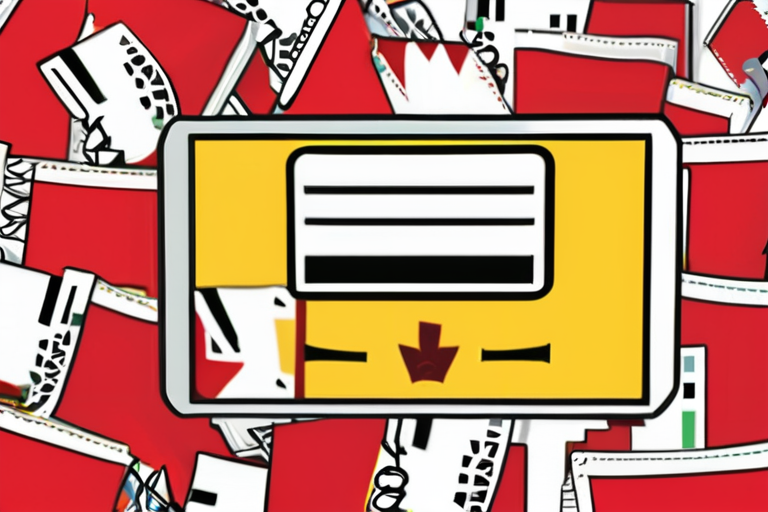

Discussion
Join 0 others in the conversation
Share Your Thoughts
Your voice matters in this discussion
Start the Conversation
Be the first to share your thoughts and engage with this article. Your perspective matters!
More Stories
Discover articles from our community

Swiss Voters to Decide Fate of Electronic ID Cards for Second Time
 Hoppi
Hoppi

DEVELOPING: Keir Starmer to Unveil Groundbreaking Digital ID Plan
 Hoppi
Hoppi

DEVELOPING: Digital ID Cards on the Horizon: Mandatory or Not, Details Emerge Now.
 Hoppi
Hoppi

DEVELOPING: Keir Starmer to Unveil Groundbreaking Digital ID Plan
 Hoppi
Hoppi

DEVELOPING: Keir Starmer Set to Unveil Groundbreaking Digital ID Plan
 Hoppi
Hoppi

Swiss Voters Back Electronic IDs in Narrow Poll Victory
 Hoppi
Hoppi

Swiss Voters to Decide Fate of Electronic ID Cards for Second Time
Swiss Voters to Decide on Electronic Identity Cards for Second Time GENEVA — On Sunday, Swiss voters will head to …

Hoppi

DEVELOPING: Keir Starmer to Unveil Groundbreaking Digital ID Plan
Breaking News: Keir Starmer to Unveil Digital ID Plan Sir Keir Starmer is set to announce plans for a compulsory …

Hoppi

DEVELOPING: Digital ID Cards on the Horizon: Mandatory or Not, Details Emerge Now.
Breaking News: UK Government Announces Mandatory Digital ID System The UK government has unveiled plans to introduce a digital ID …

Hoppi

DEVELOPING: Keir Starmer to Unveil Groundbreaking Digital ID Plan
Breaking News: Keir Starmer to Unveil Digital ID Plan Sir Keir Starmer is set to announce plans for a compulsory …

Hoppi

DEVELOPING: Keir Starmer Set to Unveil Groundbreaking Digital ID Plan
Breaking News: Keir Starmer Set to Unveil Digital ID Plan Labour leader Sir Keir Starmer is expected to announce plans …

Hoppi

Swiss Voters Back Electronic IDs in Narrow Poll Victory
Swiss Voters Narrowly Approve Plan for Electronic ID Cards In a closely contested vote, Swiss citizens have narrowly approved a …

Hoppi